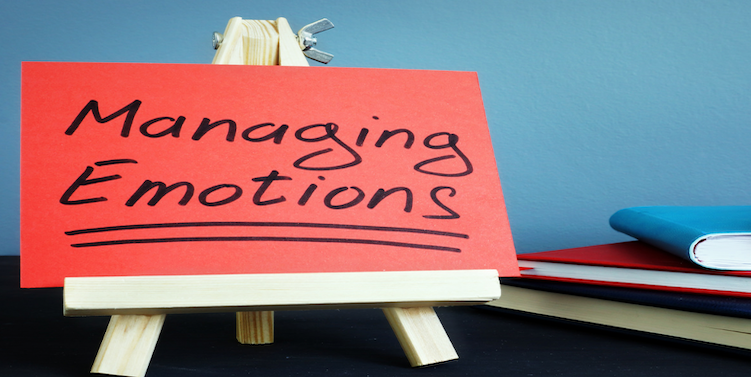
Written by Jennifer Cox LCPC
Let’s talk about Emotional Control, another Executive Function.
Emotional regulation is the ability to respond to situations in a manner that is socially appropriate and flexible, as well as being able to delay reactions as needed. To manage emotions in order to achieve goals, complete tasks, or control behavior. When one struggles in this area they have difficulties in adjusting their emotional responses in a manner that aligns with social norms and their own well-being. It involves challenges in effectively regulating the intensity, duration, and expression of emotions.
ADHD can significantly impact emotional regulation for many individuals and it can manifest in various ways.
Here are some aspects of how ADHD can affect emotional regulation:
* Intense Emotions: Individuals may experience emotions more intensely than others, leading to heightened reactions to stimuli or events. This heightened emotional response can make it challenging to regulate and express feelings appropriately.
* Rapid Mood Shifts: There may be rapid and unpredictable shifts between different emotional states, making it difficult for the person and those around them to anticipate and understand the emotional response.
* Impulsivity: A key feature of ADHD, can contribute to impulsive emotional reactions. Individuals may act on their emotions quickly without considering the consequences, leading to conflicts or regret. This can exacerbate tension and contribute to a cycle of stress.
* Frustration and Overwhelmed: Managing daily tasks and responsibilities can be more challenging for individuals with ADHD, leading to feelings of frustration and being overwhelmed. These emotions can, in turn, present as a disproportionate response and impact overall emotional well-being.
* Emotional Expression: Some individuals with ADHD may experience a delay in emotional development, which can affect their ability to understand and regulate emotions effectively.
* Conflict in Relationships: Difficulties in interpersonal relationships can occur, as others may find it challenging to navigate or understand the person’s emotional responses.
* Shifting Focus: People with ADHD often struggle with shifting their attention from one task or thought to another. This difficulty in transition can extend to emotions, making it challenging to move on from one emotional state to another.
* Rejection Sensitivity: Many individuals with ADHD experience heightened sensitivity to perceived rejection or criticism. This sensitivity can trigger intense emotional responses, such as frustration, sadness, or anger.
* Time Management Issues: Individuals with ADHD often struggle with time management (prioritizing, planning, organizing, etc.), which can result in procrastination and difficulty meeting deadlines. This, in turn, can contribute to elevated stress levels.
* Sensory Sensitivities: Some individuals with ADHD may have heightened sensitivities to sensory stimuli, making them more susceptible to stressors in their environment.
Tips on managing and coping:
* Structured Routines: Establishing and maintaining structured routines can provide a sense of predictability and help manage daily tasks, in the end reducing stress.
* Break Down Tasks: Breaking down larger tasks into smaller, more manageable steps can make them less overwhelming and more achievable.
* Time Management Techniques: Implementing time management strategies, such as using visuals around the house or workplace, timers, calendars, and reminders, can assist in better organizing tasks and deadlines.
* Mindfulness and Relaxation: Practices that promote mindfulness and relaxation can enhance self-awareness and provide tools for managing emotional responses. Practices such as mindfulness meditation, deep breathing exercises, and progressive muscle relaxation.
* Psychoeducation: Learning more about ADHD and how it specifically affects emotional regulation can be empowering. Psychoeducation helps individuals develop a better understanding of their challenges and strengths.
* Social Support: Creating a supportive and understanding social environment can contribute to emotional well-being by providing emotional outlets and assistance. Building a strong support system of friends, family, or support groups can also reduce feelings of isolation.
* Physical Exercise: Regular physical activity has been shown to reduce stress and improve overall well-being. Engaging in activities like walking, jogging, or yoga can be beneficial.
* Therapy: Cognitive-behavioral therapy (CBT), dialectical behavior therapy (DBT), behavioral therapy, and other therapeutic approaches can help individuals learn effective strategies for coping, improved self-awareness, and regulating and expressing their emotions. CBT especially can be effective in helping individuals with ADHD challenge negative thought patterns and learn specific skills for identifying and understanding their emotions and behaviors.
* Medication: In some cases, medications may be prescribed to help regulate mood and alleviate symptoms. In some cases, medication, such as stimulant or non-stimulant medications, may be prescribed to help manage ADHD symptoms.
Understanding and addressing emotional regulation is crucial for overall mental well-being and for fostering healthy relationships with oneself and others.
It’s important to note that everyone with ADHD is unique, and strategies that work for one person may not work for another. Tailoring interventions to individual needs, seeking professional guidance, and fostering a supportive environment are essential components of managing emotional control in individuals with ADHD. Additionally, fostering self-awareness and understanding individual triggers for stress can empower individuals with ADHD to implement effective coping mechanisms in their daily lives.
Understanding each of the executive functions and how they can impact your day to day, can help one understand why ADHD is a serious disorder – This is a disorder that involves self-control, self-care, self-regulation, and self-motivation to get through your day.
For more information or help with executive functioning, contact 815-363-0864 or info@echcounseling.com

